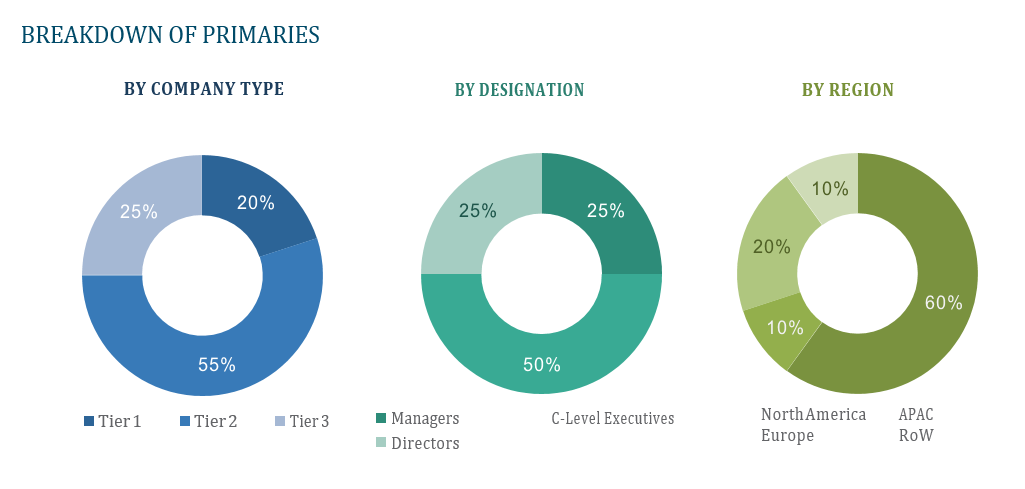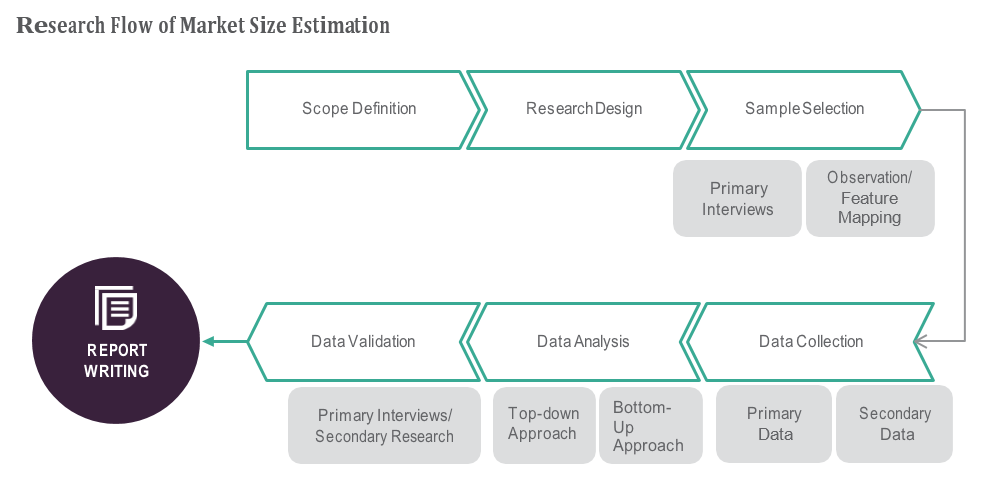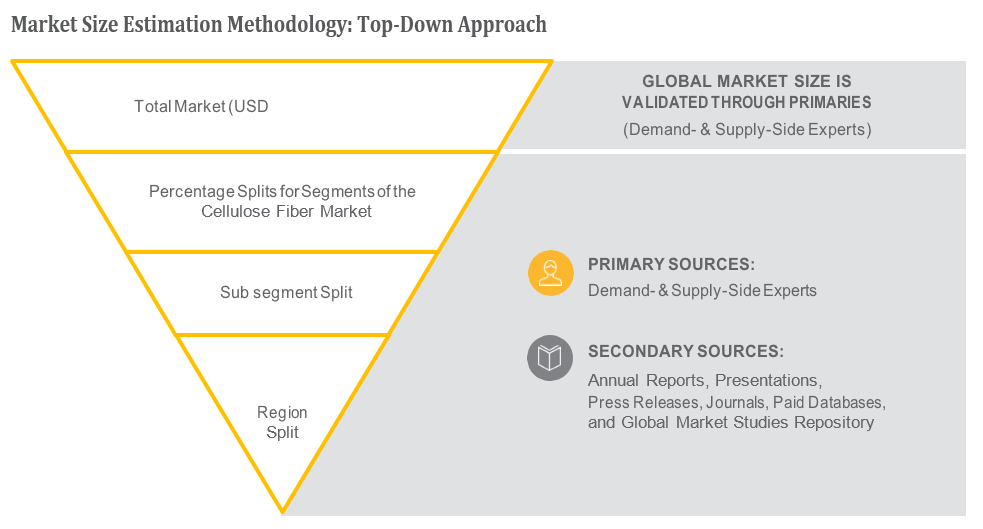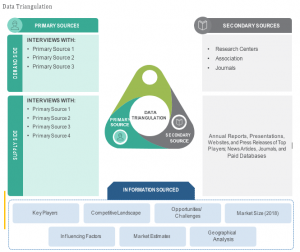OVERVIEW
The Molecular Cytogenetics Market is currently valued at USD 3.1 billion in 2024 and will be growing at a CAGR of 9.9% over the forecast period to reach an estimated USD 4.9 billion in revenue in 2029. The molecular cytogenetics market is a dynamic sector within the broader field of molecular diagnostics, focusing on the study of chromosomal abnormalities at the molecular level. It encompasses a range of techniques and methodologies aimed at detecting and analyzing genetic alterations, including fluorescence in situ hybridization (FISH), comparative genomic hybridization (CGH), and array-based techniques. These technologies enable researchers and healthcare professionals to investigate chromosomal abnormalities associated with various genetic disorders, cancer, and other diseases with a high degree of precision and sensitivity. The market for molecular cytogenetics continues to expand rapidly, driven by advancements in technology, increasing prevalence of genetic diseases, and growing demand for personalized medicine approaches. Key players in the market are constantly innovating to develop new products and improve existing methodologies, further fueling the growth and evolution of this vital field in healthcare and research.
The increasing prevalence of genetic disorders and cancer worldwide drives the demand for advanced diagnostic tools capable of accurately detecting chromosomal abnormalities and genetic variations. Additionally, the rise in geriatric population, who are more prone to genetic diseases and cancer, further boosts market growth. Technological advancements in molecular cytogenetics, such as the development of high-throughput sequencing technologies and multiplexed assays, enhance the efficiency and sensitivity of chromosomal analysis, thereby expanding the market’s capabilities and applications. Moreover, growing awareness among healthcare professionals and patients about the benefits of personalized medicine and genomic profiling drives the adoption of molecular cytogenetics for tailored treatment approaches. Furthermore, supportive government initiatives and increasing investments in research and development activities fuel innovation in the field, driving market expansion.
Market Dynamics
Drivers:
The increasing prevalence of genetic disorders and cancer worldwide drives the demand for advanced diagnostic tools capable of accurately detecting chromosomal abnormalities and genetic variations. Additionally, the rise in geriatric population, who are more prone to genetic diseases and cancer, further boosts market growth. Technological advancements in molecular cytogenetics, such as the development of high-throughput sequencing technologies and multiplexed assays, enhance the efficiency and sensitivity of chromosomal analysis, thereby expanding the market’s capabilities and applications. Moreover, growing awareness among healthcare professionals and patients about the benefits of personalized medicine and genomic profiling drives the adoption of molecular cytogenetics for tailored treatment approaches. Furthermore, supportive government initiatives and increasing investments in research and development activities fuel innovation in the field, driving market expansion.
Key Offerings:
Key offerings in the molecular cytogenetics market encompass a comprehensive suite of products and services tailored to meet the diverse needs of researchers, clinicians, and laboratory professionals. These offerings typically include a range of molecular cytogenetics assays and kits for detecting chromosomal abnormalities and genetic variations, such as FISH probes, CGH arrays, and single-nucleotide polymorphism (SNP) arrays. Additionally, instrumentation and software solutions designed for data analysis, interpretation, and visualization play a crucial role in enabling efficient and accurate cytogenetic analysis. Furthermore, services such as genetic counseling, technical support, and training programs are often provided to facilitate the adoption and utilization of molecular cytogenetics technologies.
Restraints :
The molecular cytogenetics business is expanding, but there are a number of obstacles that could prevent it from going farther. The high expense of molecular cytogenetics tests, equipment, and software is a major barrier that can restrict accessibility, especially in environments with limited resources. Furthermore, because molecular cytogenetics techniques are difficult and need specialised training and knowledge, there is a shortage of qualified specialists who can accurately perform and interpret these tests. For new molecular cytogenetics products, regulatory obstacles and rigorous licencing procedures present additional difficulties for market participants, postponing their attempts to enter and expand into new markets. Moreover, people may be discouraged from having molecular cytogenetics testing due to ethical and privacy concerns about genetic testing and data sharing, which could hinder market expansion. Furthermore, the value of results in clinical practice is limited due to the absence of harmonisation and standardisation among various molecular cytogenetics platforms and methodologies, which impedes interoperability and comparability. In order to support the further development and uptake of molecular cytogenetics technologies in medical and scientific settings, it will be imperative to address these constraints.
Regional Information:
• North America and Europe, robust healthcare systems and higher healthcare expenditure support the adoption of advanced molecular cytogenetics technologies. Additionally, favorable reimbursement policies and extensive research activities drive market growth.
• Asia-Pacific and Latin America, increasing healthcare spending and growing awareness of genetic disorders contribute to market expansion. However, challenges such as limited access to advanced healthcare facilities and lower purchasing power in some regions may constrain market growth. Moreover, regulatory complexities and variations in reimbursement policies across different countries within these regions influence market dynamics.
Recent Developments:
• In March 2023, Thermo Fisher Scientific & Pfizer partner to expand localized access to next generation sequencing-based testing for cancer patients in international markets.
•In January 2023, Agilent announced the acquisition of Avida Biomed, a high-performance NGS target enrichment workflow developer for cancer research.
Key Players:
Abbott Laboratories, Thermo Fisher Scientific Inc., F. Hoffmann-La Roche Ltd, Agilent Technologies, Inc., PerkinElmer, Inc., Illumina, Inc., Bio-Rad Laboratories, Inc., Oxford Gene Technology (OGT), Genomictree, Inc., and MetaSystems.
– The Molecular Cytogenetics Market is expected to reach an estimated value of USD 4.9 billion in revenue by 2029.
2)What is the estimated CAGR of the Molecular Cytogenetics Market over the 2024 to 2029 forecast period?
– The CAGR is estimated to be 9.9% for the Molecular Cytogenetics Market over the 2024 to 2029.
3) Who are the key players in the Molecular Cytogenetics Market ?
– Abbott Laboratories, Thermo Fisher Scientific Inc., F. Hoffmann-La Roche Ltd, Agilent Technologies, Inc., PerkinElmer, Inc., Illumina, Inc., Bio-Rad Laboratories, Inc., Oxford Gene Technology (OGT), Genomictree, Inc., and MetaSystems.
4) What are the drivers for the Molecular Cytogenetics Market ?
– The global rise in genetic disorders and cancer is driving demand for advanced diagnostic tools. Technological advancements in molecular cytogenetics, high-throughput sequencing, and multiplexed assays expand the market. Increased awareness about personalized medicine and genomic profiling, government initiatives, and research investments fuel innovation.
5) What are the restraints and challenges in the Molecular Cytogenetics Market ?
– The molecular cytogenetics market faces challenges such as high costs, specialized training, regulatory hurdles, ethical concerns, and lack of standardization. These factors limit accessibility, hinder commercialization, and limit the utility of molecular cytogenetics in healthcare and research settings. Addressing these restraints is crucial for promoting the continued growth and adoption of molecular cytogenetics technologies.
6) What are the key applications and offerings of the Molecular Cytogenetics Market ?
– The molecular cytogenetics market offers a range of products and services, including assays, instrumentation, software solutions, genetic counseling, technical support, and training programs, to meet the needs of researchers, clinicians, and laboratory professionals in detecting chromosomal abnormalities and genetic variations.
7) Which region is expected to drive the market for the forecast period?
– North America is expected to have the highest market growth from 2024 to 2029
Why Choose Us?
Insights into Market Trends: Global Market Studies reports provide valuable insights into market trends, including market size, segmentation, growth drivers, and market dynamics. This information helps clients make strategic decisions, such as product development, market positioning, and marketing strategies.
Competitor Analysis: Our reports provide detailed information about competitors, including their market share, product offerings, pricing, and competitive strategies. This data can be used to inform competitive strategies and to identify opportunities for growth and expansion.
Industry Forecasts: Our reports provide industry forecasts, which will inform your business strategies, such as investment decisions, production planning, and workforce planning. These forecasts can help you to prepare for future trends and to take advantage of growth opportunities.
Access to Industry Experts: Our solutions include contributions from industry experts, including analysts, consultants, and subject matter experts. This access to expert insights can be valuable for you to understand the market.
Time and Cost Savings: Our team at Global Market Studies can save you time and reduce the cost of conducting market research by providing comprehensive and up-to-date information in a single report, avoiding the need for additional market research efforts.











